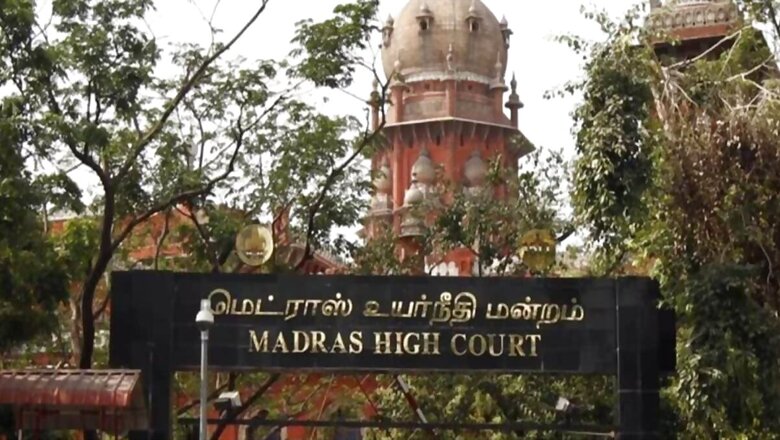
views
The Madras High Court recently expressed concern over complaints about hospitals in Tamil Nadu being reluctant to consider non-relatives as organ donors, despite the law not mandating a familial connection.
The bench of Justice N Seshasayee observed that the hospitals’ such hesitancy might be due to insufficient awareness of the law as the Transplantation of Human Organs and Tissues Act, 1994, permits even non-relatives to donate organs.
In the order passed in a writ petition filed by J Kaja Moinudeen, a kidney failure patient seeking approval for a life-saving transplant, the judge wrote: “The hospitals in Tamil Nadu appear to have pinned themselves to their committed reluctance to entertain a non-relative for an organ donor when the Act does not insist that an organ donor should be a relative. This attitude is worrisome, as it holds the potential to undermine the objectives behind the Act and to defeat its purpose.”
He added, “Suffice to say that the transplants from non-relative donors are contemplated under Section 9(3) of the Act, and Rules 14 and 19 of 2014 prescribed the procedures too. Consequently, refusal by hospitals in the State of Tamil Nadu to perform transplants concerning unrelated donors would be plainly illegal.”
Therefore, the single-judge bench urged the state government to take a leading role in providing legal education on this subject to physicians and hospitals.
The petitioner, a doctor by profession himself, could not find a suitable donor within his family, leading a well-wisher, Ramayee, to offer her kidney. However, hospitals in Tamil Nadu were unwilling to accept a non-relative donor, prompting him to seek assistance in Kerala, where a hospital approved the transplant, except for authorisation from the Authorisation Committee, causing confusion about the granting authority.
Consequently, the petitioner approached the high court for issuance of a writ of mandamus to the respondents to issue an NOC to enable him to undergo renal transplantation and to grant approval for the same on a priority basis.
Justice Seshasayee empathised with the petitioner’s plight, noting bureaucratic reluctance within the system.
“This writ petition presents a spectre of what this Court may term it as bureaucratic reluctance familiar in our system that germinates out of administrative apprehensions. A doctor, who may have helped save many lives, now finds himself in a state of helplessness to save his own life,” he said.
He clarified that authorisation should be granted by the committee in the state where both the donor and recipient reside. As both parties were from Tamil Nadu, the judge directed them to approach the Authorisation Committee in Coimbatore.
The Coimbatore South Tahsildar was assigned to verify their residential status and report back to the committee. After receiving the report, the committee was instructed to make a decision within four weeks in line with the Act and relevant rules.
If approval is granted, it should be forwarded to the Lakeshore Hospital’s Authorisation Committee in Kochi for the transplant to proceed. In case of a refusal, the petitioner has the option to appeal under the Act’s provisions, the court ordered.




















Comments
0 comment